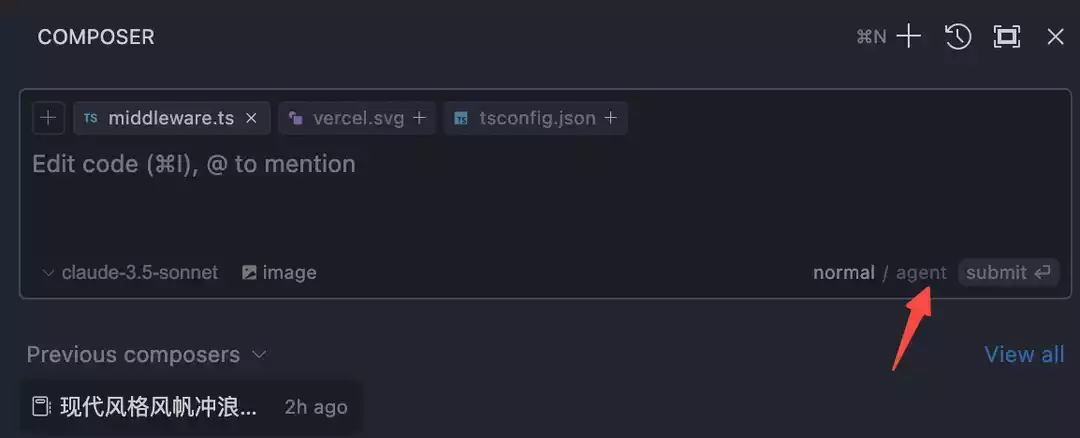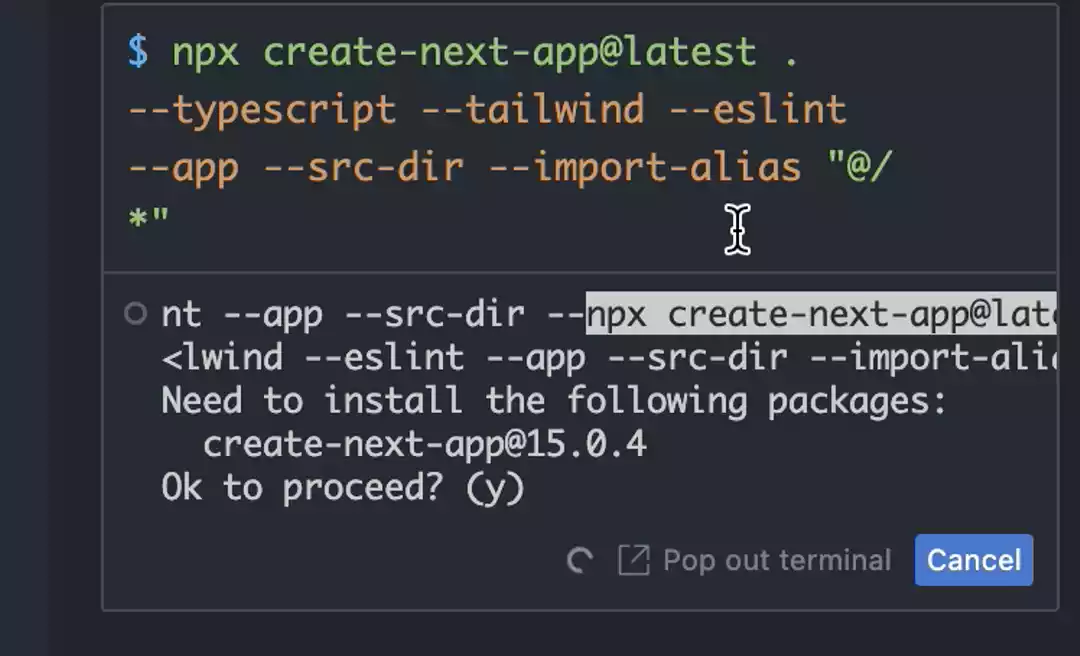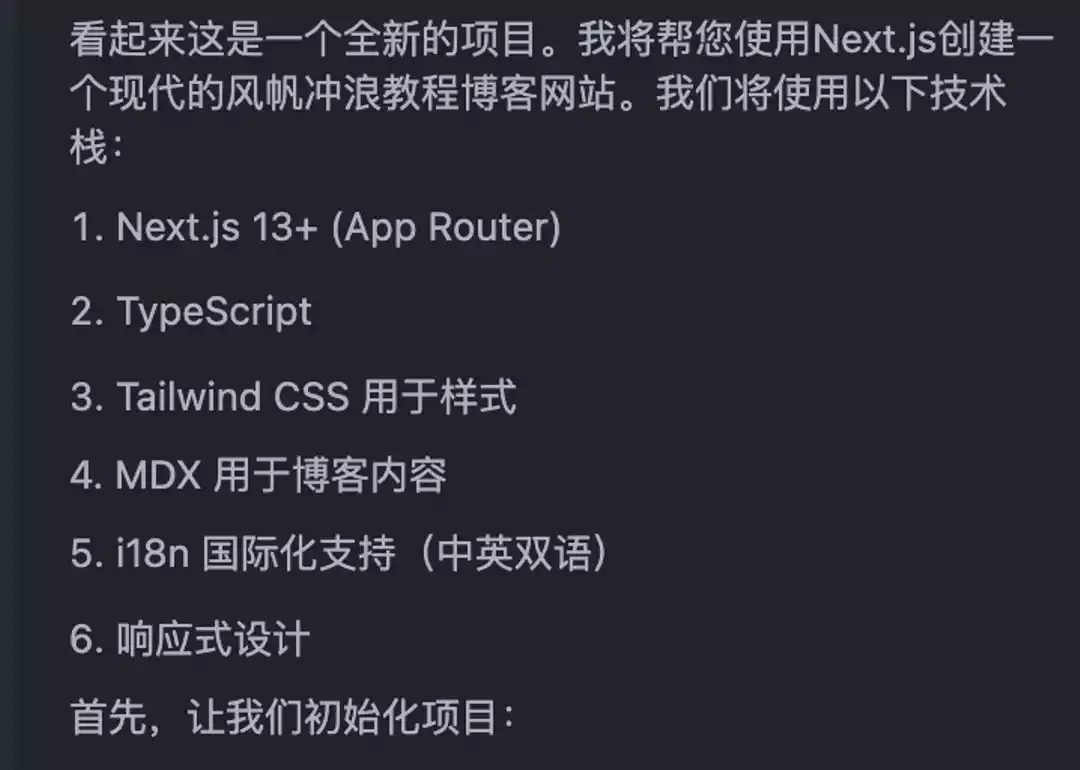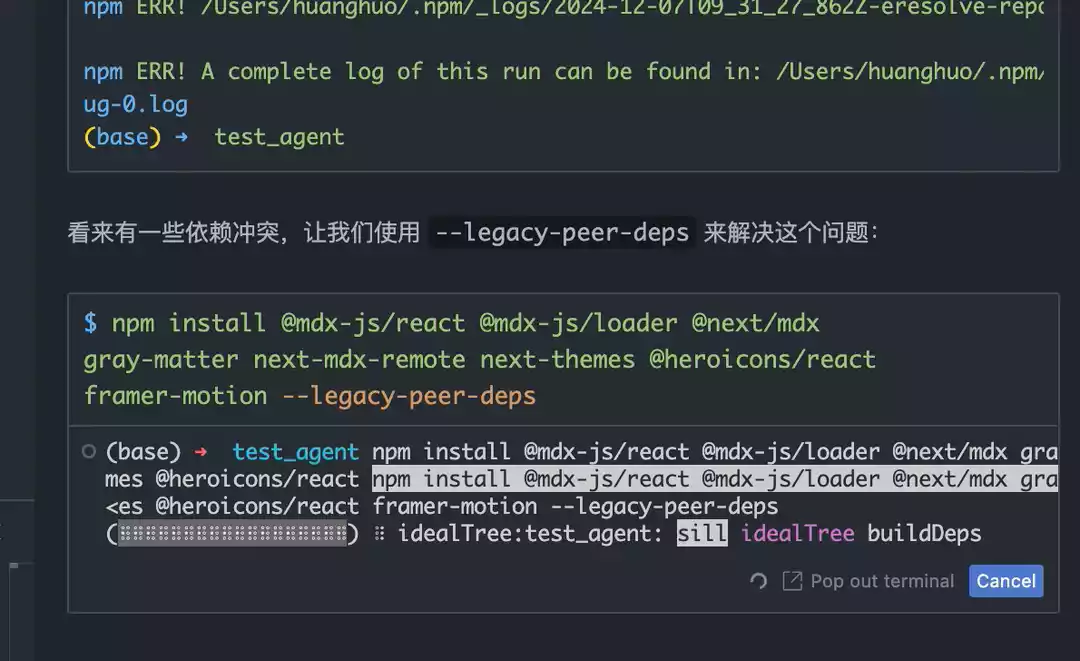Agent AI Assistant

Cursor Agent is a revolutionary AI agent system that is not just a simple code assistant but an intelligent partner that can think and work like a real programmer. It can autonomously complete complex programming tasks, understand project context, and provide continuous development support.
What is Agent?
Agent is a major update feature introduced in Cursor version 4.3. Unlike traditional code completion or simple Q&A, Agent is more like a "thinking" programming assistant. Its two key features are:
- Proactivity: Ability to actively understand requirements, plan solutions, and solve problems
- Execution: Ability to autonomously complete complex task sequences

Core Features
1. Intelligent Context Understanding
- Automatic Context Collection: Actively analyzes project structure and related code
- Requirement Understanding: Accurately grasps development intentions and goals
- Dependency Analysis: Identifies project dependencies and tech stack
2. Proactive Problem Solving
- Error Diagnosis: Automatically analyzes and fixes errors
- Performance Optimization: Identifies and resolves performance bottlenecks
- Code Refactoring: Provides code improvement suggestions
3. Multi-task Coordination
- Parallel Processing: Handles multiple related tasks simultaneously
- State Management: Maintains task execution states
- Resource Coordination: Optimizes resource usage
Layout and Interface
New Layout Changes

- Composer Position: Moved from screen center to right side
- Chat Integration: Shares right tab bar with Chat
- Quick Switching: Use cmd+L and cmd+I to switch between features
Enabling Agent Mode

- Open Composer (cmd+I)
- Click the Agent icon to switch to Agent mode
- Start using enhanced features
Practical Application Scenarios
1. Project Initialization
// Agent can help set up complete project framework
interface ProjectSetup {
name: string
template: 'next' | 'vite' | 'express'
features: string[]
dependencies: Record<string, string>
}
// Example: Initialize Next.js project
const setup: ProjectSetup = {
name: 'my-next-app',
template: 'next',
features: ['typescript', 'auth', 'database'],
dependencies: {
'next': 'latest',
'@prisma/client': '^5.0.0'
}
}2. Feature Development

Agent will:
- Analyze requirements and break down tasks
- Plan implementation steps
- Write core code
- Add test cases
- Optimize code quality
3. Problem Diagnosis and Fixing
// Agent automatically diagnoses and fixes problems
interface DiagnosticResult {
type: 'error' | 'warning' | 'info'
location: CodeLocation
message: string
suggestion?: string
autoFix?: () => Promise<void>
}
async function diagnoseAndFix(
issue: string
): Promise<DiagnosticResult[]> {
// 1. Analyze problem
const diagnosis = await analyzeProblem(issue)
// 2. Generate fixes
const fixes = await generateFixes(diagnosis)
// 3. Apply fixes
await applyFixes(fixes)
return diagnosis
}Workflow
1. Requirement Analysis

- Understanding user requirements
- Determining technical constraints
- Planning implementation paths
2. Code Generation and Optimization
Agent-generated code follows best practices:
- Type safety
- Error handling
- Performance optimization
- Maintainability
3. Testing and Deployment
- Automatically generates test cases
- Runs test suites
- Provides deployment suggestions
Best Practices
1. Effective Communication
For best results:
- Provide clear requirement descriptions
- Specify concrete constraints
- Give timely feedback
2. Progressive Development
- Start with small tasks
- Gradually increase complexity
- Continuously validate and optimize
3. Code Review
Agent can:
- Check code quality
- Identify potential issues
- Provide improvement suggestions
Usage Tips
1. Command Execution

- Agent automatically executes commands in Composer
- User confirmation required before execution
- Supports background running
2. Multi-task Handling
- Terminal commands and conversations can run in parallel
- Real-time task status updates
- Automatic resource scheduling
3. Problem Solving
When encountering problems, Agent will:
- Actively analyze causes
- Provide solutions
- Verify fix effectiveness
Important Notes
Tips
- Provide detailed context information
- Verify generated code
- Maintain interaction with Agent
Cautions
- Important decisions need human confirmation
- Regularly backup critical data
- Pay attention to code security
Common Issues
1. Agent Mode Not Working
- Check if Cursor version is up to date
- Confirm Agent mode is correctly enabled
- Verify network connection status
2. Code Generation Quality
- Provide more context information
- Clearly specify constraints
- Give timely feedback and corrections
3. Performance Issues
- Optimize task scale
- Set reasonable concurrency
- Use background execution appropriately
Future Outlook
Agent technology is rapidly developing:
- Stronger understanding capabilities
- Smarter decision-making
- More natural interaction
- Broader applications
Through continuous learning and adaptation, Agent will become an even more capable assistant for developers, helping us complete development tasks more efficiently.

